Andrew Bick: Concrete-Disco-Systems
Hales is delighted to announce Concrete-Disco-Systems, a solo exhibition of recent work by Andrew Bick. His sixth solo show with the gallery, the exhibition celebrates a focused, research-led practice that seeks to reconsider histories of constructivism and systems art in a contemporary context.
Andrew Bick’s paintings consist of endless permutations - at the core of the artist’s practice is a grid system, one he reproduces time and time again. In 2008, Bick copied a grid structure from one of his own artworks, digitised it, and has since used this same grid as a starting point for every painting. In Bick’s view, new versions of the abstract, concrete and constructive, necessitate the repetition of banal information, leading to an unexpected conjuncture of word and image. His work is based on the belief that disruption within a system helps us relearn the process of paying attention.
In Bick’s work, mediated layering of geometry and gesture act as an antidote to a world of instantaneous information. It is evident that the paintings are made laboriously, testing how far he can take the medium. An amalgamation of watercolour, oil paint, marker pen and encaustic are used to carefully block off areas, building the surface and composition, contrasting with casual-seeming brushstrokes and open areas of untouched support.
The paintings featured in Concrete-Disco-Systems are spatially complex, drawing the viewer closer to the work to explore what is illusory depth and what has been physically layered in three-dimensional relief. The relationship between each element of the work is restless; these are paintings full of internal argument, revelling in the idea of the grid as a contradictory format. They are simultaneously precise yet unresolved, playful and serious, transparent and opaque. Each work further extends the possible intersections and overlaps, revealing the process of painting by suspending sections in layers of wax encaustic.
Bick pays close attention to the formal processes of painting as well as the legacies of constructivism, systems art and concrete poetry. He has developed a cyclical correlation between resources, academic research and approaches for painting. A vast knowledge and appreciation of art history informs the work, alongside longstanding visual and verbal dialogue with figures such as Gillian Wise and Jeffrey Steele. Bick also developed correspondence with concrete poet Robert Lax, collaborating on several publications. Despite historical research being at the forefront of the artist’s practice, he paints very much in the present, highlighting the canonical to subvert the rules. Gently deconstructing what has come before with deft humour, Bick uses systems not to predetermine the outcome, but to conjure new ways of thinking and to develop different results. The works act as a re-evaluation of constructivism and systems art, simultaneously celebratory and disruptive.
Alongside Bick’s paintings, Concrete-Disco-Systems includes a new piece that transcribes a variation of the original grid painted directly onto the wall. The wall painting has previously been created in different iterations, most notably at Museum Haus Konstruktiv (Zurich, Switzerland, 2017). Coloured shelves between the pillars of Hales London divide the space, influencing the way the viewer moves around the room and interacts with the artwork. This spatial intervention recalls Bick’s first exhibition with Hales, For Robert Lax, now over twenty-five years ago, in which the artist produced a fifteen-metre mono-print, stretched between the two pillars and walls of the former Hales gallery in Deptford, South London. This installation evolved in to curatorial projects and architectural commissions and although the original work has been destroyed, it is still emblematic of Bick’s approach to reconfiguring the exhibition space as part of the artwork, as well as his ongoing questioning of the autonomy of the painting process.
The shelving system directs the act of looking and provides a space to display supporting research and artworks. Included are an artist’s book combining rubber stamp versions of Bick’s grids; an image of Sexburga Drive, a non-descript street on the Isle of Sheppey in North Kent; as well as collages referring to curatorial planning and note taking from the studio. Featured in the artist’s book are sections from a first edition of Daniel Pedoe’s 1978 Geometry and the Liberal Arts, which Bick includes in his re-visitation and celebration of the constructive. The now outmoded title (we no longer use the term ‘liberal arts’) directly reflects the questions he is asking throughout his practice about originality and terminology.
Choreographing the viewer’s interaction with the paintings, through composition and manipulation of architectural space, Concrete-Disco-Systems is unified by a grid which echoes indefinitely through all the work presented. This exhibition contributes to a practice which continuously seeks to evolve through a commitment to abstraction and a rigorous process of re-evaluating histories and systematic methods.
ABOUT THE ARTIST
Andrew Bick (b. Gloucestershire, UK, 1963) received an MA in painting from the Chelsea School of Art (1988) and has since shown extensively in Europe and the U.S. Bick lives and works in London.
Bick was a research fellow at the Henry Moore Institute (Leeds, UK, 2007), was the recipient of the Premio Internazionale Fiar (1992), and shortlisted for the NatWest Art Prize (1999) and the Jerwood Painting Prize (1998).
Selected exhibitions include Von Bartha (Basel, Switzerland), Bluecoat Liverpool (UK), Museum Haus Konstruktiv (Zurich, Switzerland) Stiftung Konzeptuelle Kunst, (Soest, Germany), Kunstalle Palazzo (Liestal, Switzerland), Wilhelmshaven Kunsthalle (Germany), Niederrheinischer Kunstverein (Wesel, Germany) and Pizzuti Collection (US). Bick’s work can be found in numerous collections including the British Library (UK), British Museum (UK), Victoria & Albert Museum (UK), New York Public Library (US), Yale Center for British Art (US), Goldman Sachs, UBS, Simmons & Simmons, Roche Art Collection, Basel, and Museum Haus Konstruktiv (Zurich, Switzerland). Bick has curated several shows including: Conversations around Marlow Moss, & Model, Leeds (UK), The Conversation: Anthony Hill, Peter Lowe, Jeffrey Steele, Gillian Wise, Galerie Von Bartha Collection (Basel, Switzerland) Construction and its Shadow, Leeds City Art Gallery (UK); The Kingston Turnpike, the Stanley Picker Gallery (UK); Sight Mapping, Sala Rekalde, Bilbao (Spain) travelled to GoMA (Glasgow, UK) and Konsthallen Bohuslans Museum (Sweden).
![Andrew Bick, Variant t-s [detail], STORMY, 2016-2018, Acrylic, pencil, oil, watercolour, and wax medium on linen on wood, 76 x 64 x 3.5 cm, 29 7/8 x 25 1/4 x 1 3/8 in](https://artlogic-res.cloudinary.com/w_800,h_800,c_limit,f_auto,fl_lossy,q_auto/ws-artlogicwebsite0652/usr/exhibitions/images/133/a_bic0211-image.jpg)
![Andrew Bick, Variant T-S – OGVDS [compendium] #4, 2018, Acrylic, pencil, oil, watercolour, and wax on linen on wood, 135 x 100 x 4 cm, 53 1/8 x 39 3/8 x 1 5/8 in](https://artlogic-res.cloudinary.com/w_600,c_limit,f_auto,fl_lossy,q_auto/ws-artlogicwebsite0652/usr/exhibitions/images/133/andrew-bick-variant-t-s-ogvds-compendium-4-2018-acrylic-pencil-oil-watercolour-and-wax-on-linen-on-wood-135-x-100-x-4-cm-a_bic0214-photo-by-angus-mill.jpg)
![Andrew Bick, Variant t-s [flat and tilted] #2 v3, 2013-2018, Acrylic, pencil, oil, watercolour, and wax on linen on wood, 135 x 100 x 4 cm, 53 1/8 x 39 3/8 x 1 5/8 in](https://artlogic-res.cloudinary.com/w_600,c_limit,f_auto,fl_lossy,q_auto/ws-artlogicwebsite0652/usr/exhibitions/images/133/andrew-bick-variant-t-s-flat-and-tilted-2-v4-2013-2018-acrylic-pencil-oil-watercolour-and-wax-on-linen-on-wood-135-x-100-x-4-cm-a_bic0212-photo-by-angus-mill.jpg)
![Andrew Bick, Drawing 2017 [from the negative drawings Kunsthalle Palazzo Liestal], 2017, Marker pen, watercolour, and collage on graph paper, 20.6 x 14.4 cm, 8 1/8 x 5 5/8 in](https://artlogic-res.cloudinary.com/w_600,c_limit,f_auto,fl_lossy,q_auto/ws-artlogicwebsite0652/usr/exhibitions/images/133/andrew-bick-drawing-2017-from-the-negative-drawings-kunsthalle-palazzo-liestal-2017-marker-pen-watercolour-and-collage-on-graph-paper-20.6-x-14.4-cm-a_bic0240-photo-by-angus-mill.jpg)

![Andrew Bick, OGDVS-GW [detail] D, 2016, Acrylic, oil, watercolour, and wax medium on linen on wood, 76 x 64 x 3.5 cm, 29 7/8 x 25 1/4 x 1 3/8 in](https://artlogic-res.cloudinary.com/w_600,c_limit,f_auto,fl_lossy,q_auto/ws-artlogicwebsite0652/usr/exhibitions/images/133/andrew-bick-ogdvs-gw-detail-d-2016-acrylic-oil-watercolour-and-wax-medium-on-linen-on-wood-76-x-64-x-3.5-cm-a_bic0225-photo-by-angus-mill.jpg)
![Andrew Bick, Variant t-s [detail], STORMY, 2016-2018, Acrylic, pencil, oil, watercolour, and wax medium on linen on wood, 76 x 64 x 3.5 cm, 29 7/8 x 25 1/4 x 1 3/8 in](https://artlogic-res.cloudinary.com/w_600,c_limit,f_auto,fl_lossy,q_auto/ws-artlogicwebsite0652/usr/exhibitions/images/133/a_bic0211-image.jpg)
![Andrew Bick, Variant t-s [compendium detail] #4, 2018, Acrylic, pencil, oil, watercolour, and wax medium on linen on wood, 76 x 64 x 3.5 cm, 29 7/8 x 25 1/4 x 1 3/8 in](https://artlogic-res.cloudinary.com/w_600,c_limit,f_auto,fl_lossy,q_auto/ws-artlogicwebsite0652/usr/exhibitions/images/133/andrew-bick-variant-t-s-compendium-detail-4-2018-acrylic-pencil-oil-watercolour-and-wax-medium-on-linen-on-wood-76-x-64-x-3.5-cm-a_bic0210-photo-by-angus-mill.jpg)
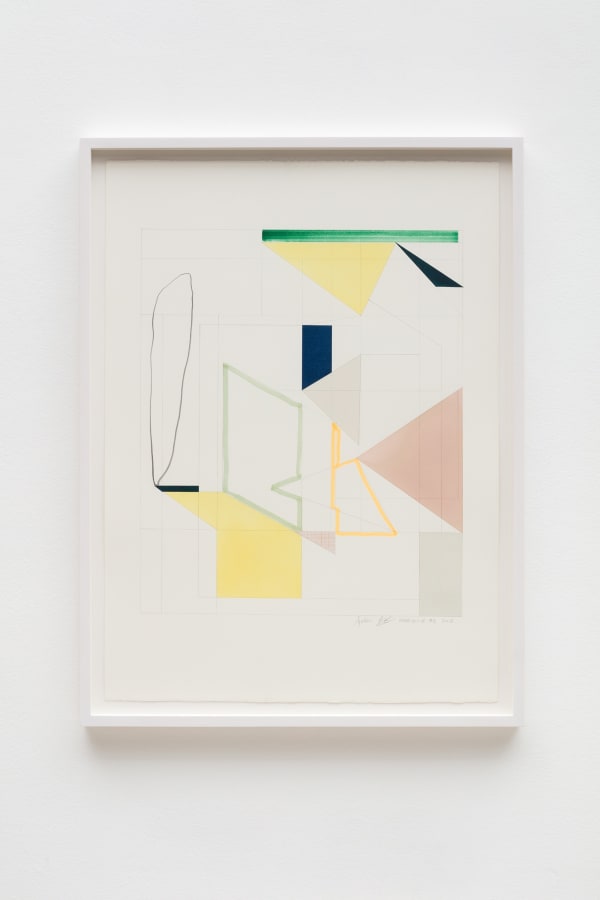
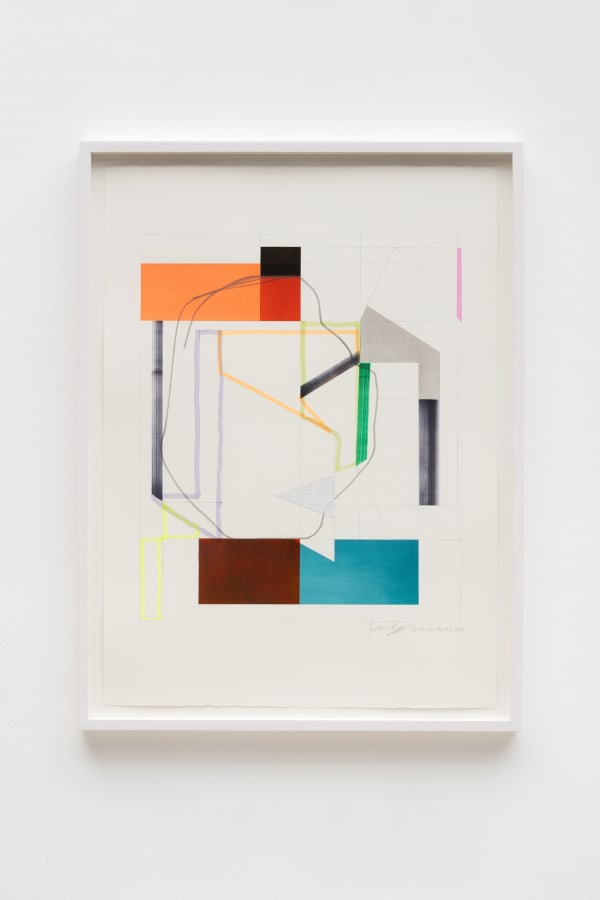
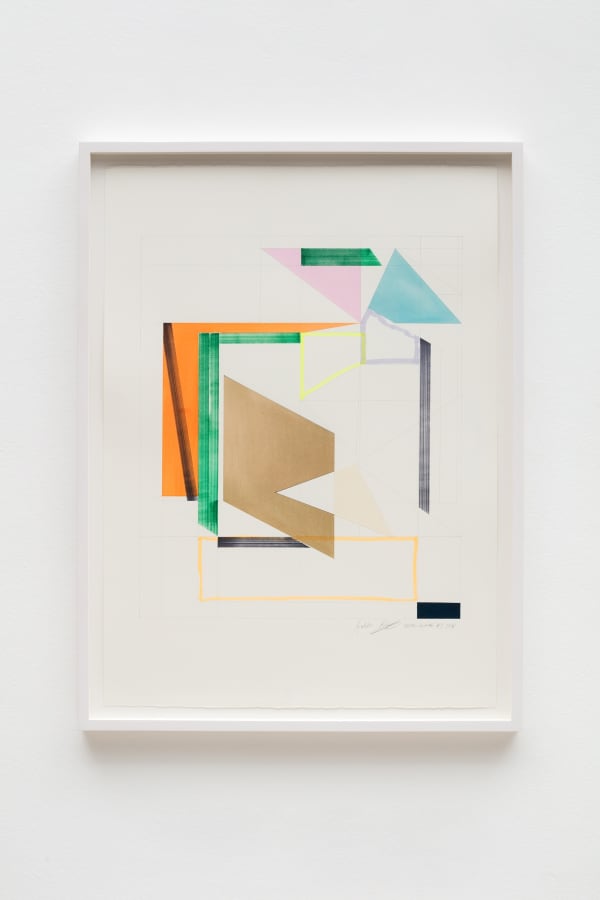
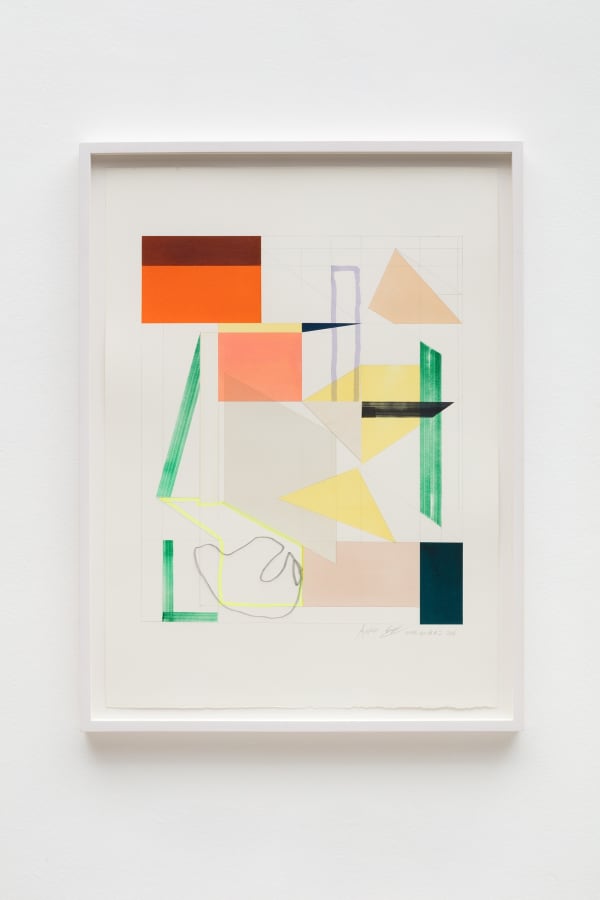
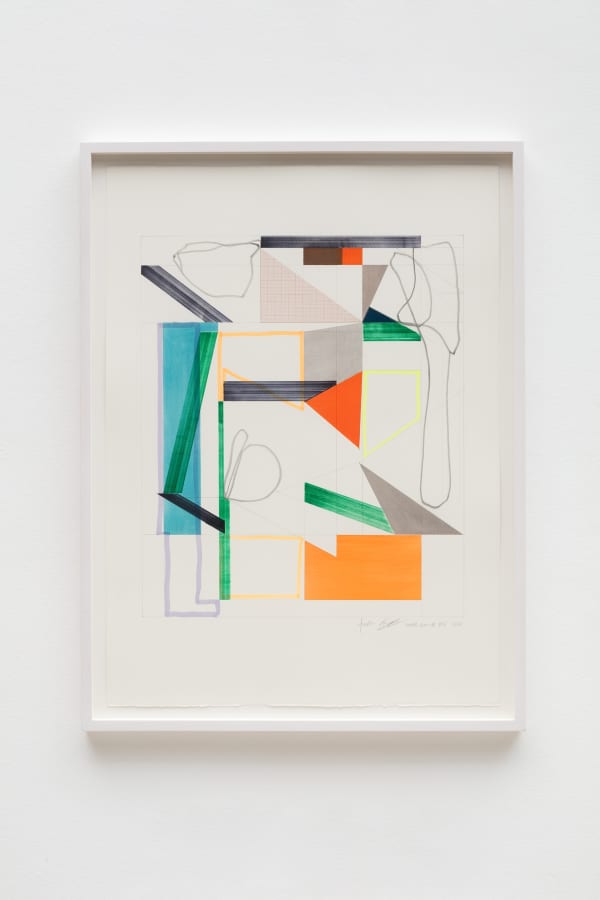
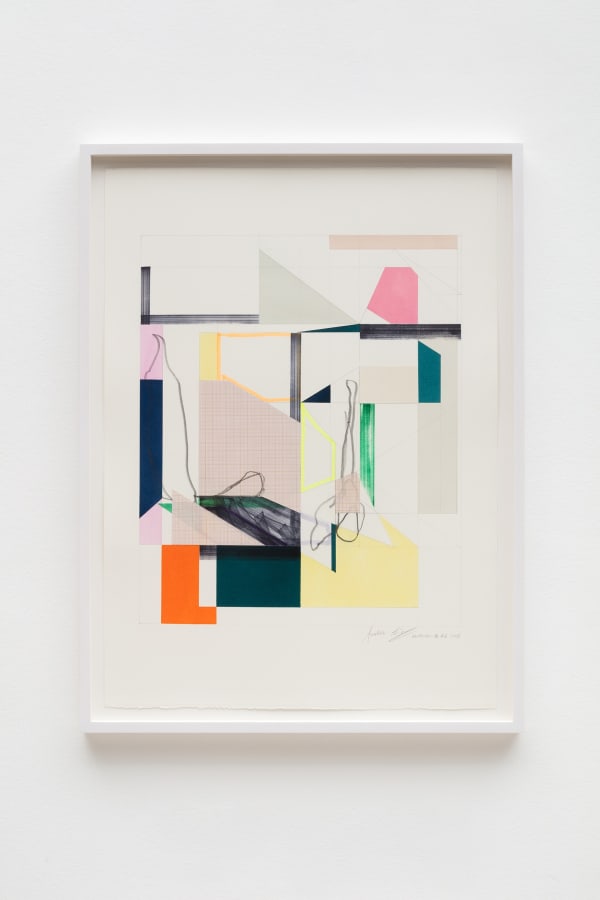

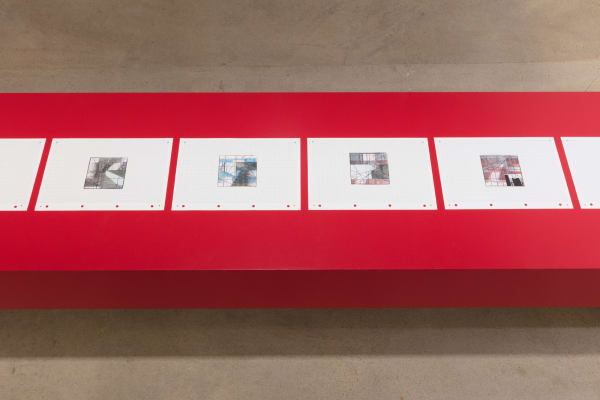

![Detail of Andrew Bick, OGVGGT [double echo], 2020](https://artlogic-res.cloudinary.com/w_50,h_50,c_fill,f_auto,fl_lossy,q_auto/ws-artlogicwebsite0652/usr/images/artists/artwork_image_for_artists_page/items/ce/ce3a28c2b85842ba97391f3e533097c3/bick.jpg)